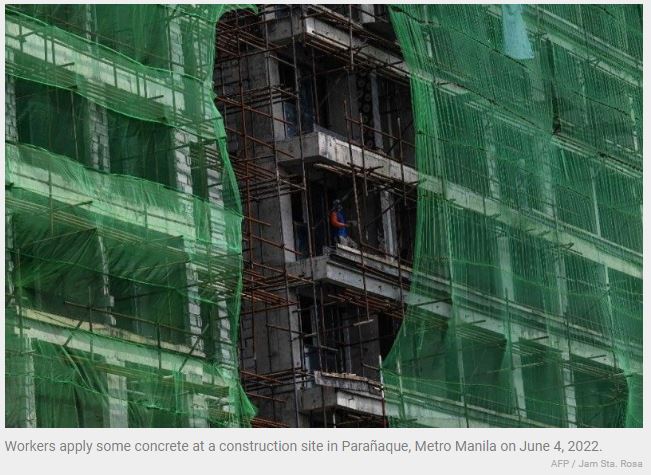Philippines: ‘Infrastructure spending cut harmful to recovery, competitiveness’
MANILA, Philippines — The Department of Finance (DOF) said cutting infrastructure spending would narrow the budget deficit in the short term, but may harm economic recovery and industrial competitiveness in the long term.
DOF chief economist Gil Beltran said yesterday the government could slash its budget gap in the medium term by tightening its belt on spending as part of fiscal consolidation.
“Fiscal consolidation and economic recovery will be very critical in preserving our fiscal stability, (as) the planned fiscal consolidation rests on shoring up tax revenues, winding down pandemic-related spending and cutting non-priority expenditures,” he said.
However, Beltran cautioned against reducing disbursements for infrastructure just to achieve the deficit targets until 2025. He said infrastructure spending should be maintained, as it would support an economy trying to recoup its losses from the pandemic.
“Cutting infrastructure spending may narrow down the deficit momentarily, but it will definitely be counter-productive in the long run as far as economic recovery is concerned. Simply put, a half-finished bridge does not cut travel time even by a minute,” Beltran said.
The finance official said stopping public works midway through the project cycle deprives people of opportunities like access to livelihood that the infrastructure can bring.
Based on projections, the government will narrow its deficit to 7.6 percent of gross domestic product (GDP) in 2022, 6.1 percent in 2023, 5.1 percent in 2024 and 4.1 percent in 2025.
To do this, revenue collection as a percentage of the GDP, should hit 15.2 percent in 2022, 15.3 percent in 2023, 15.6 percent in 2024 and 16.1 percent in 2025.
The government should minimize the rise in expenditures in the next few years, containing it to 22.8 percent of GDP in 2022, 21.3 percent in 2023, 20.8 percent in 2024 and 20.2 percent in 2025. Infrastructure spending is expected to stay above five percent of the economy during the period.
Last year, infrastructure spending amounted to P1.12 trillion, contributing at least 5.8 percent to GDP. Under the revised fiscal plan, infrastructure disbursements should reach 5.5 percent of economic output in 2022, 5.4 percent in 2023 and 2024 and 5.3 percent in 2025.
To normalize the government’s fiscal space, the DOF wants the next administration to pursue a streak of tax reforms removing VAT exemptions, deferring tax cuts and slapping new taxes.
Further, the agency proposes that structural changes be undertaken, including the reform on the pension system of uniformed personnel, costing the government around P114 billion every year.
Source: https://www.philstar.com/business/2022/06/15/2188369/infrastructure-spending-cut-harmful-recovery-competitiveness


 Thailand
Thailand




